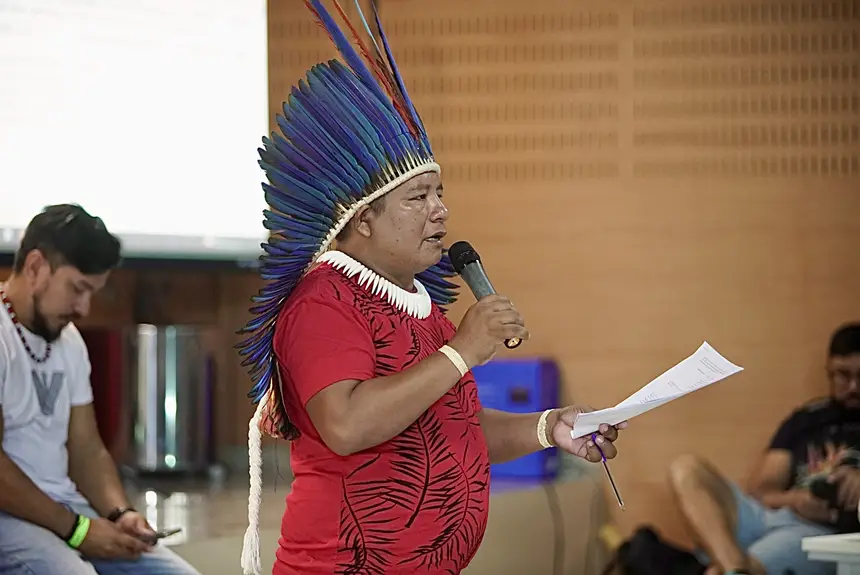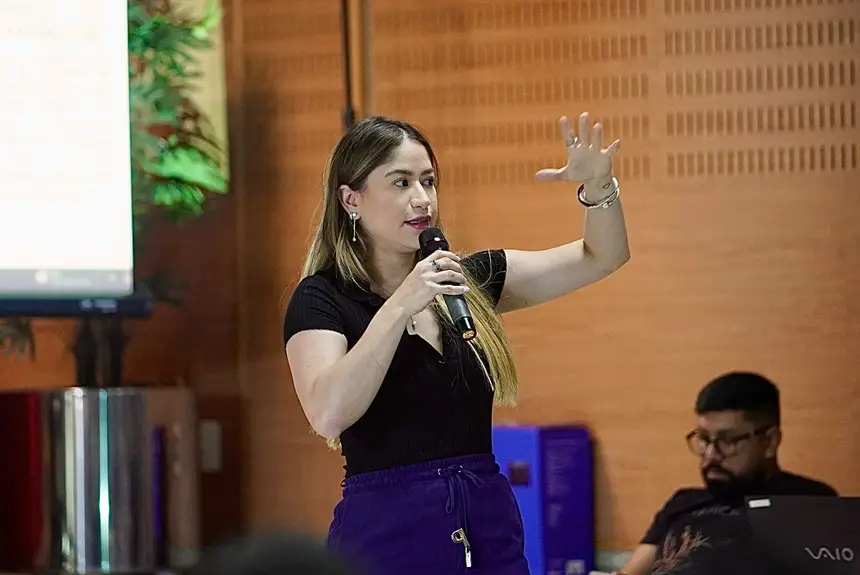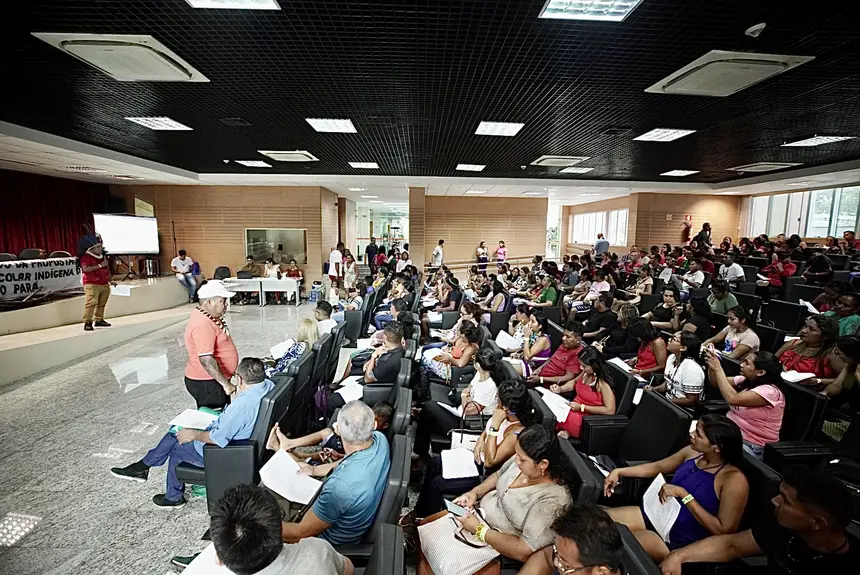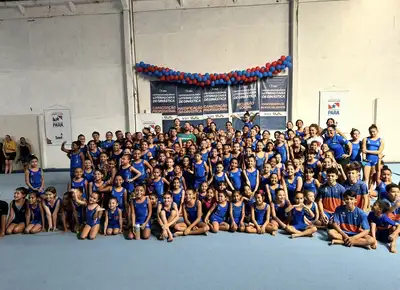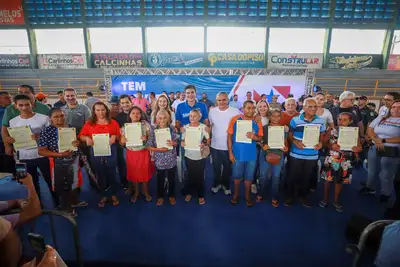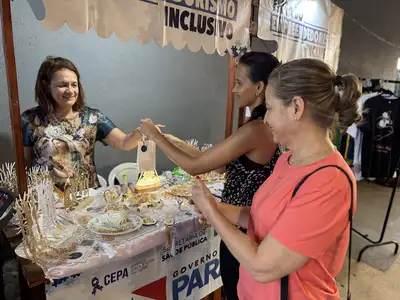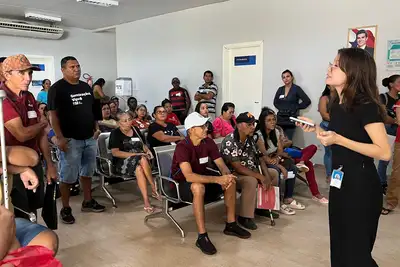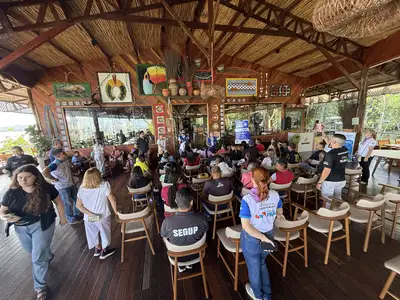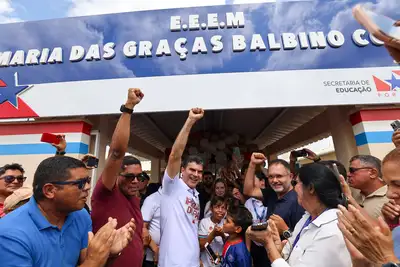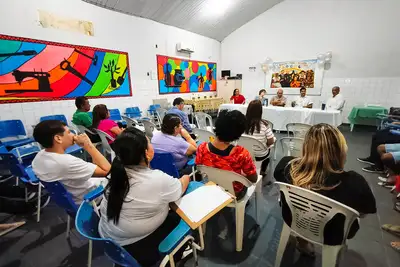In Santarém, Indigenous people from Baixo Amazonas participate in the construction of the Indigenous School Education Law
The state gathers leaders from 14 Indigenous peoples, educators, students, and institutions from the municipalities of Aveiro, Belterra, and Santarém to discuss the future of Indigenous school education in Pará
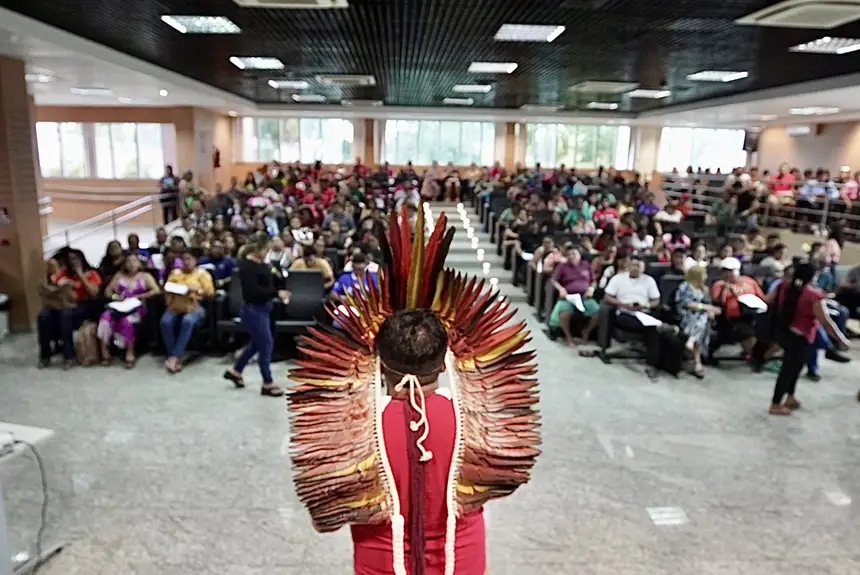
Monday (26) was marked by the continuation of the important debate on the Draft Indigenous School Education Law in the eight ethnoregions of Pará. The meeting brought together representatives from 14 peoples of the Baixo Amazonas region and was promoted by the State Secretariat for Indigenous Peoples (Sepi). The program takes place in the auditorium of the Public Ministry of the State of Pará (MPPA) in Santarém, western Pará, and extends until this Tuesday (27).
The aim of the event is to gather Indigenous leaders, educators, students, and representatives from institutions such as the State University of Pará (Uepa) and the National Indian Foundation (Funai) to discuss, together with the state government, the directions of Indigenous School Education in the Pará territory.
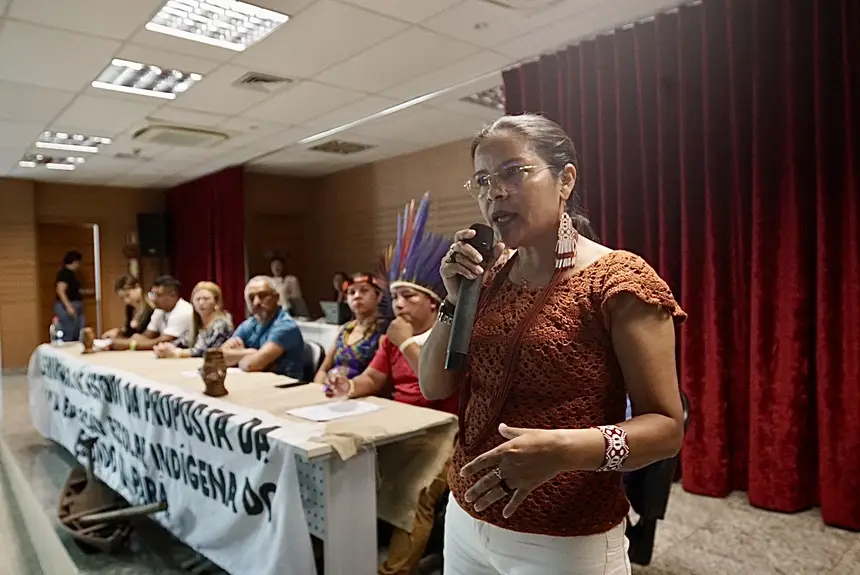
“Today and tomorrow, they will provide contributions, and we will listen to them and systematize all this information to later approve it with them. They are very attentive to every phrase, every chapter, every item, and every article of the law. Those who know the specificities and needs of each people are the communities. Indigenous peoples have a motto: ‘Nothing for us, without us,’ so we are building a process with the participation of all,” explained Vera Arapiun, coordinator of Indigenous School Education at the State Secretariat of Education (Seduc).
Representatives from the Apyaká, Arapiun, Arara Vermelha, Borari, Jaraki, Kumaruara, Maytapu, Munduruku, Munduruku Cara Preta, Tapajós, Tapuia, Tupaiú, Tupinambá, and Sateré-Mawé peoples, with villages located in the municipalities of Santarém, Aveiro, and Belterra, were invited to this public listening moment. The group participates in the analysis and discussion of the draft bill that seeks to regulate Indigenous education in the state.
Chief Christan Pereira Batista, a teacher in the Fortaleza Village, located in the Indigenous Land Andirá-Marau in Aveiro — where more than 50 students are enrolled in the state network — approved the consultation and emphasized the importance of the direct participation of Indigenous peoples in the construction of the legislation.
“It is very important for all of us. From here, we will take all the information to our relatives who could not come. We thank you and hope that the meeting has very positive results. Our struggle is for the creation of Indigenous schools, with better conditions, better structure, especially for the villages farther from the city, like ours,” he stated.
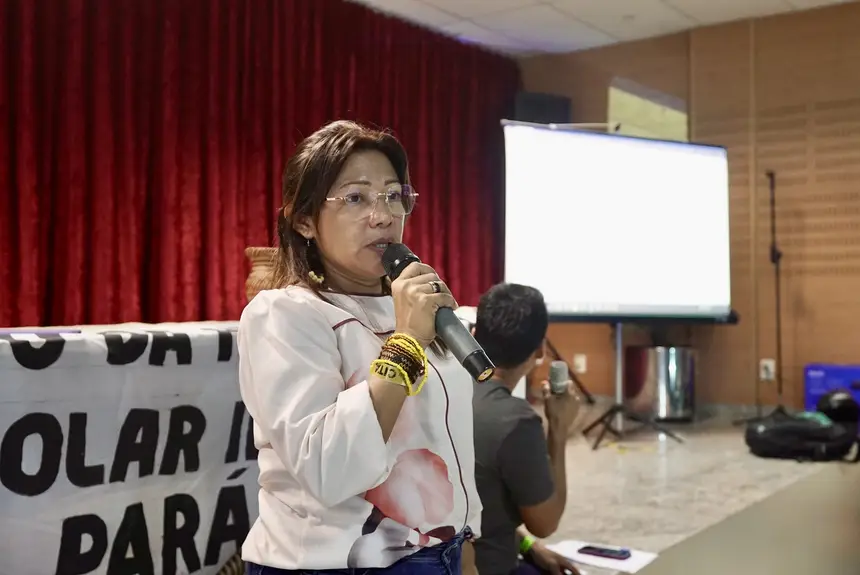
Teacher Mila Munduruku also highlighted the relevance of the process for the Indigenous communities in the region. “It is a historic moment for us in Baixo Amazonas. We started yesterday the reading of the draft bill from the state, which gives us autonomy to create a new law with our demands, in the way we want and dream. It is a differentiated policy to meet the needs of peoples throughout the state. We are giving our contributions on the construction of schools, teacher training, to develop a specific policy as well.”
This is the 18th public listening conducted by the state government in various regions of Pará. The administration has been promoting cycles of prior consultations in all eight ethnoregions to build a groundbreaking legislation, adapted to the realities and cultural contexts of each people.
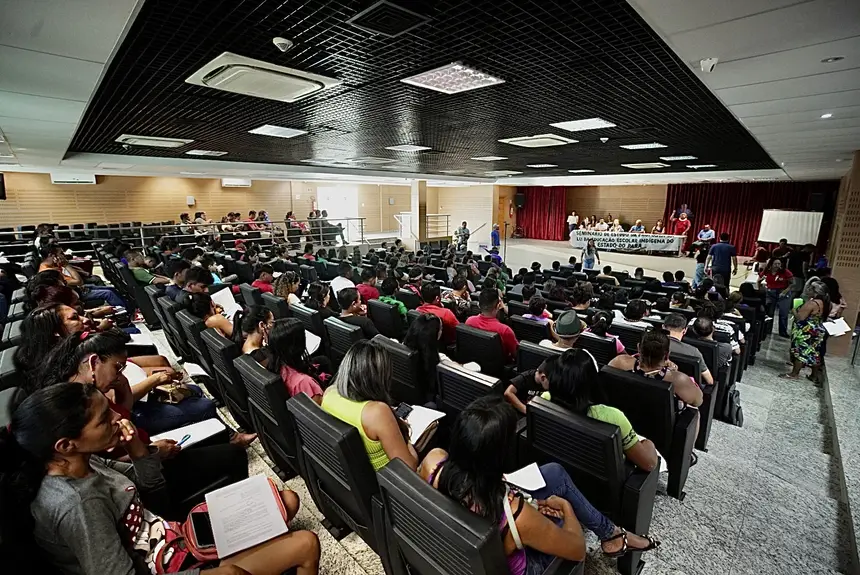
“It is with struggle, it is with resistance, it is with courage that a better Pará, a better Amazon, and a better country are built. And with Indigenous peoples, it is no different. It is by listening, by participating, by building. Today, Indigenous peoples can say that Pará built, from the bottom up, the draft law that will regulate Indigenous school education in the state. I want to thank the peoples of Baixo Amazonas and the peoples of all Pará who are actively participating in this process of listening, building, and dreaming of a better future for the education of our state,” concluded the Secretary of State for Indigenous Peoples, Puyr Tembé.


